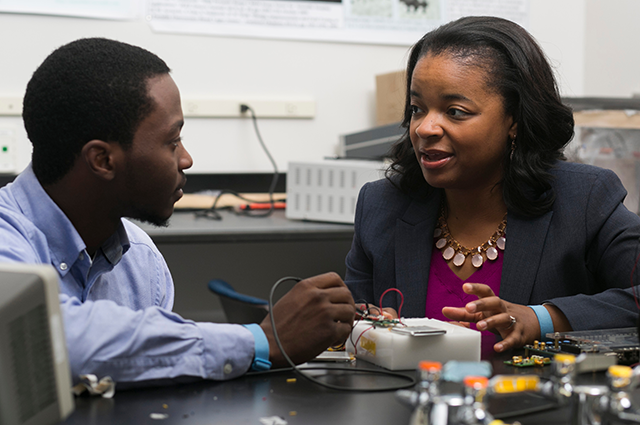Stimulating the brain

Tufts researchers are collaborating on a new project, funded by the Center for Applied Brain and Cognitive Sciences (CABCS), to develop a brain machine interface probe to enable simultaneous transcranial direct current simulation (tDCS) and measurement of associated changes in oxygenated hemoglobin using functional near infrared spectroscopy (fNIRS) tools.
Transcranial direct-current stimulation (tDCS) is a non-invasive neuro-modulation technique, which holds potential in treating neurological diseases and enhancing motor and cognitive performance. During tDCS, a weak current, typically between 0.5 to 2mA, is delivered to brain by electrodes on the scalp to facilitate or inhibit neural activities. Clinical studies conducted by CABCS researchers have demonstrated the benefits of tDCS for a variety of Soldier-relevant cognitive use cases, including sustained attention and vigilance, working memory, response inhibition, and multitasking.
The project will be lead by Associate Professor Valencia Koomson of the Department of Electrical and Computer Engineering, in collaboration with Professor Robert Jacob from the Department of Computer Science and CABCS researchers Dr. Grace Giles and Dr. Erika Hussey.
The Center for Applied Brain and Cognitive Sciences is an interdisciplinary center for applied cognitive sciences, cooperatively managed by Tufts University and the U.S. Army Natick Soldier Research, Development and Engineering Center (NSRDEC).
Department:
Computer Science